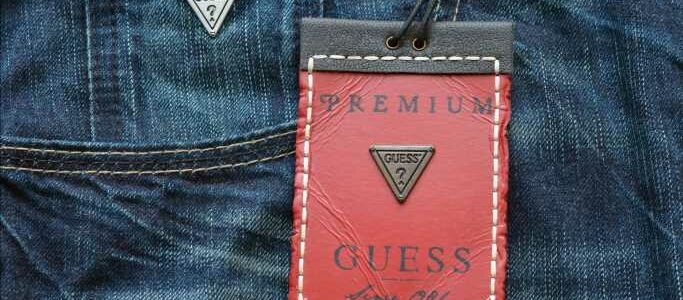
To Yield or Not to Yield: The Perplexing Narrative Behind Guess
From a cursory glance, clothing and fashion accessory brand Guess (US:GES) seemingly offers an enticing platform for speculation. Founded in 1981, Guess began as a jeans company, eventually blossoming into a global lifestyle brand. Evolving into a desirable destination for handbags, watches and eyewear, the enterprise — while battered by the COVID-19 pandemic — still commands an enormous presence in the consumer discretionary space.
Further, based on the headline print, the labor market continues to add new employment opportunities at a pace that exceeds analysts’ expectations. For example, May’s employment situation summary revealed that the economy added 339,000 jobs. Also, housing starts in the U.S. jumped sharply against expert forecasts, leading to significant gains for real-estate-related businesses.
By skimming highlights, one could easily come away with the impression that the consumer is buoyed and thus more willing to spend on discretionary purchases. If accurate, the framework should entice a closer inspection of GES stock as worthwhile speculation.
Value Signal
It that isn’t enough, consider that the jeans maker’s shares are currently flashing a Value Score of 88.01 on Fintel’s proprietary quant dashboard that ranks companies based on their relative valuation. Scores range from 0 to 100, with 100 being the most undervalued.
Adding to the intriguingly optimistic thesis stands the sizable dividend. Guess stock sports a yield of 4.55% at current price levels. In contrast, the consumer discretionary sector’s average yield sits at a rather lowly 1.89%. Plus, the underlying payout ratio is only 40.23%, suggesting a sustainable passive income flow.
If that wasn’t enough of a speculative catalyst, the market prices GES stock at a forward multiple of 7.48. In contrast, the apparel industry prints a forward price-earnings ratio of 10.50 times, implying that GES runs at a nearly 29% discount to its core market.
While tempting, prospective participants should also consider the other side of the coin.
Fading Top Line
Undeniably, the COVID-19 disaster imposed a tumultuous headwind on GES stock. Following the conclusion of the fiscal year ended January 2021, Guess posted revenue of $1.877 billion, down 30% from the prior year’s tally of $2.678 billion. Naturally, then, management looked forward to the return to normal and Guess took full advantage.
In the fiscal year ended January 2022, the fashion retailer rang up sales of $2.592 billion. A year later, it pushed the needle forward to $2.687 billion. However, momentum seems to have faded recently. In the quarter ended April 2023, Guess generated only $570 million on the top line, falling 3.9% against the year-ago quarter’s tally of $593 million.
Also, operating income came out to only $1 million, a far cry from the $37 million posted one year prior. On the bottom line, Guess incurred a net loss of $12 million, again a sharp contrast to the year-ago quarter’s net income of $8 million.
Of course, if revenue continues to decline, the supposed discount that GES stock carries would start looking more and more like a trap. Further, the sustainability of Guess’ generous yield would likely attract greater scrutiny.
Adding to concerns for GES stock is that the underlying company may be having difficulty convincing its customers to splurge on its premium fashion products. Conspicuosly, days inventory in the most recent quarter came out to 140.44, a nearly 13% increase from the 124.66 days inventory registered in the year-ago level.
Also, inventory turnover slipped to 0.65 from 0.73 over the one-year span ending April 2023. Unfortunately, this framework suggests waning interest for premium discretionary labels, thus making GES stock a difficult case to crack.
Nuanced Fundamentals
Still, the consumer may be responding to brewing pressures in an economy that may present a net negative context for GES stock. For instance, while the May jobs report came in above expectations, the unemployment rate also ticked higher to 3.7% from a five-decade low of 3.4% in April.
Moreover, the length of the average work week declined as did the pace of hourly wage growth. Taken as a whole, this translates to cutting several hundred thousand jobs. Also, employers may not feel as intense of an incentive to dangle higher wages to attract workers, suggesting a loosening of the labor market down the line.
This narrative aligns with mass layoffs that have not only affected the technology sector but also many other industries. In other words, the headline print of the May jobs report may be disguising the loss of high-compensation opportunities. Under this environment, it’s no surprise that Guess has recently struggled to move its inventory, thus leading to lower revenue.
To be fair, the snapshot print of GES stock highlights a charming implication. Guess appears both undervalued and generous in terms of passive income. Nevertheless, unless the specific context is speculation, more conservative investors may want to wait for additional confirming evidence before marching forward.
This article originally appeared on Fintel
Sponsored: Find a Qualified Financial Advisor
Finding a qualified financial advisor doesn’t have to be hard. SmartAsset’s free tool matches you with up to 3 fiduciary financial advisors in your area in 5 minutes. Each advisor has been vetted by SmartAsset and is held to a fiduciary standard to act in your best interests. If you’re ready to be matched with local advisors that can help you achieve your financial goals, get started now.
Source: Read Full Article